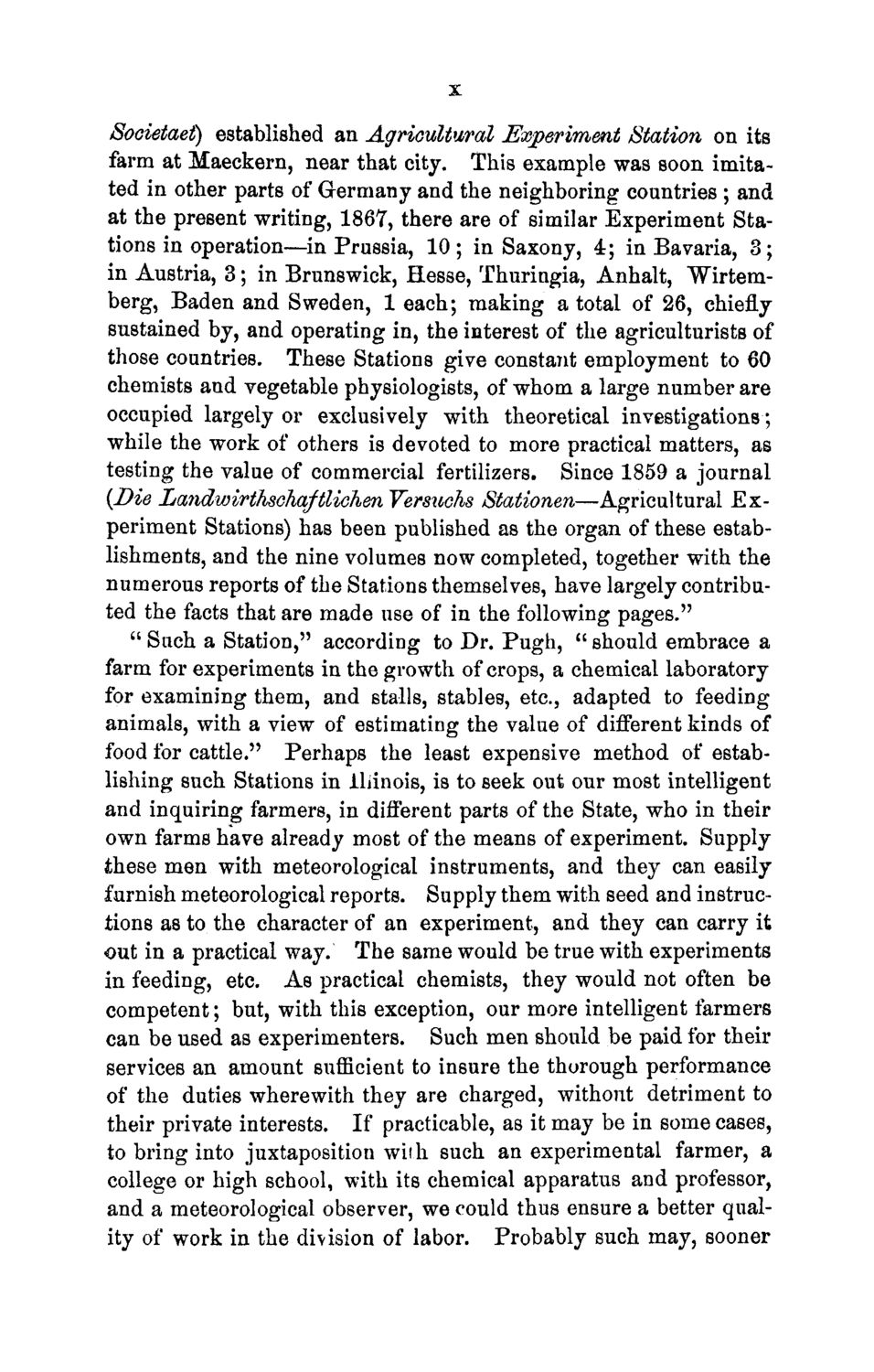| |
| |
Caption: Board of Trustees Minutes - 1868
This is a reduced-resolution page image for fast online browsing.

EXTRACTED TEXT FROM PAGE:
X Societaet) established an Agricultural Experiment Station on its farm at Maeckern, near that city. This example was soon imitated in other parts of Germany and the neighboring countries ; and at the present writing, 1867, there are of similar Experiment Stations in operation—in Prussia, 1 0 ; in Saxony, 4; in Bavaria, 3 ; in Austria, 3 ; in Brunswick, Hesse, Thuringia, Anhalt, Wirtemberg, Baden and Sweden, 1 each; making a total of 26, chiefly sustained by, and operating in, the interest of the agriculturists of those countries. These Stations give constant employment to 60 chemists and vegetable physiologists, of whom a large number are occupied largely or exclusively with theoretical investigations; while the work of others is devoted to more practical matters, as testing the value of commercial fertilizers. Since 1859 a journal {Die Landwirthsehaftliehen Versuehs Stationen—Agricultural Experiment Stations) has been published as the organ of these establishments, and the nine volumes now completed, together with the numerous reports of the Stations themselves, have largely contributed the facts that are made use of in the following pages." " Such a Station," according to Dr. Pugh, " should embrace a farm for experiments in the growth of crops, a chemical laboratory for examining them, and stalls, stables, etc., adapted to feeding animals, with a view of estimating the value of different kinds of food for cattle." Perhaps the least expensive method of establishing such Stations in Illinois, is to seek out our most intelligent and inquiring farmers, in different parts of the State, who in their own farms have already most of the means of experiment. Supply these men with meteorological instruments, and they can easily furnish meteorological reports. Supply them with seed and instructions as to the character of an experiment, and they can carry it out in a practical way. The same would be true with experiments in feeding, etc. As practical chemists, they would not often be competent; but, with this exception, our more intelligent farmers can be used as experimenters. Such men should be paid for their services an amount sufficient to insure the thorough performance of the duties wherewith they are charged, without detriment to their private interests. If practicable, as it may be in some cases, to bring into juxtaposition with such an experimental farmer, a college or high school, with its chemical apparatus and professor, and a meteorological observer, we could thus ensure a better quality of work in the division of labor. Probably such may, sooner
| |